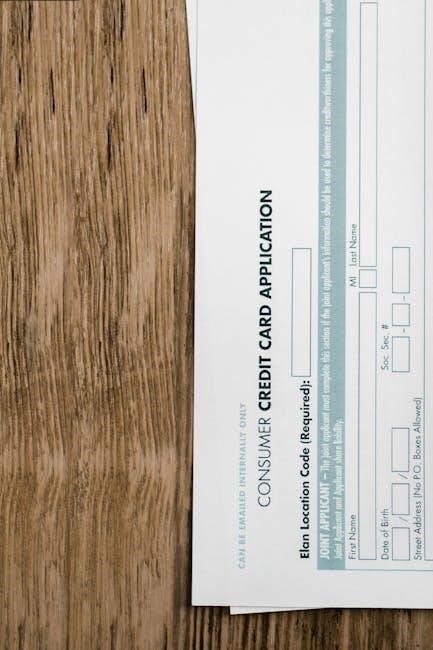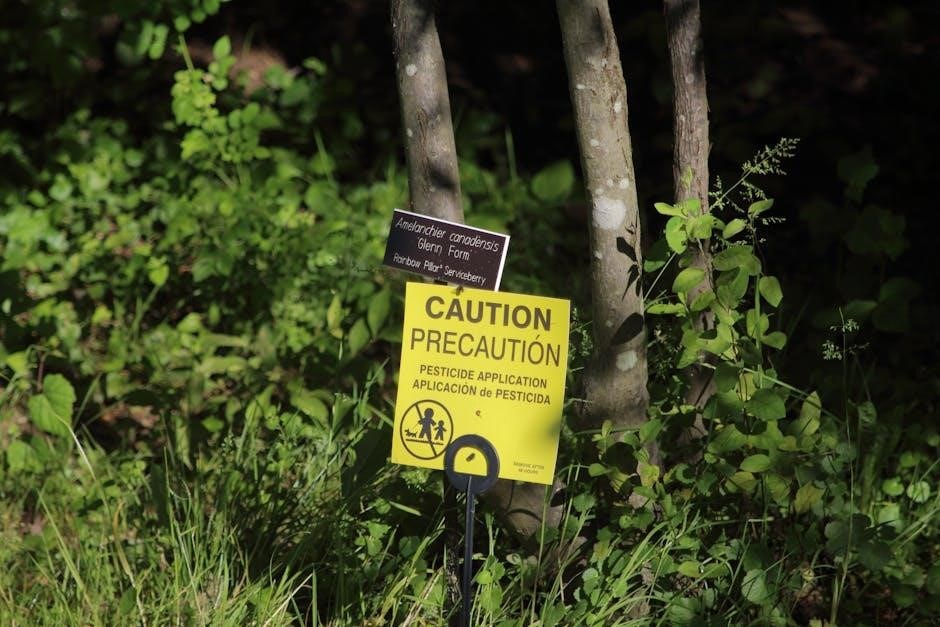rental application form nova scotia

Overview of the Rental Application Form in Nova Scotia
The rental application form in Nova Scotia is a crucial document for both landlords and tenants, ensuring compliance with provincial rental regulations and fostering a transparent process.
1.1 Importance of the Rental Application Form
The rental application form plays a vital role in Nova Scotia’s rental process. It ensures both landlords and tenants comply with legal standards, promoting fairness and transparency. By standardizing the information required, it helps landlords assess potential tenants while protecting applicants’ rights. The form also streamlines the rental process, reducing disputes by ensuring all necessary details are disclosed upfront. Its importance lies in balancing legal compliance with practicality, fostering trust and clarity in the landlord-tenant relationship.
1.2 Legal Requirements for Landlords and Tenants
Nova Scotia mandates specific legal requirements for landlords and tenants within the rental application process. Landlords must adhere to the Residential Tenancies Act, ensuring fair treatment and non-discrimination. They are required to use standardized forms, such as Form P, to maintain transparency. Tenants, in turn, must provide accurate information on their rental applications. Both parties are expected to comply with regulations regarding security deposits, lease agreements, and eviction processes. These legal obligations ensure a balanced and lawful rental relationship, protecting the rights of all involved while maintaining procedural fairness.

Key Information Required in the Rental Application Form
The rental application form in Nova Scotia requires personal details, rental history, employment information, and financial data to assess suitability for tenancy.
2.1 Personal and Contact Information
The rental application form requires applicants to provide their full name, date of birth, Social Insurance Number, phone number, email, and current address. This ensures landlords can verify identities and maintain communication. Additional details, such as emergency contacts, may also be requested to facilitate a smooth rental process.
2.2 Rental History and References
Rental history and references are crucial in Nova Scotia rental applications. Applicants must provide detailed past tenancy information, including landlord contacts and dates, to verify their rental behavior. Positive references from landlords or managers highlight reliability and responsibility. This section is crucial for landlords to assess potential tenants accurately, ensuring a smooth and issue-free rental relationship.

2.3 Employment and Financial Information
Employment and financial information is essential for assessing a tenant’s ability to pay rent. Applicants must provide proof of income, such as pay stubs, bank statements, or a letter from their employer. Landlords may also request details about employment history to gauge stability. Financial records, like credit scores, are often reviewed to evaluate credibility. This section ensures landlords can confidently determine if a tenant can meet rental obligations, fostering a secure and reliable tenancy agreement.

Tenant Screening Process in Nova Scotia
The tenant screening process in Nova Scotia involves landlords evaluating potential tenants’ rental history, financial stability, and references to assess reliability and suitability for the property.

3.1 Landlord’s Rights and Responsibilities
Landlords in Nova Scotia have the right to screen tenants using rental application forms to assess suitability. They must maintain property safety, comply with tenancy laws, and disclose rental conditions. Landlords are responsible for fair tenant selection, avoiding discrimination, and providing written leases. They can evict tenants for non-payment or breaches using legal processes like Form K. New regulations require landlords to register properties, pay annual fees, and use approved forms for security deposits. These responsibilities ensure a balanced and regulated rental market, protecting both parties’ interests while fostering transparency and accountability.
3.2 Tenant’s Rights and Protections
Tenants in Nova Scotia are protected under the Residential Tenancies Act, ensuring fair treatment and legal recourse. Rent control measures limit unjustified increases, while eviction protections prevent unfair removal. Tenants have the right to a safe, maintained living environment and must receive written leases. They are also protected from discrimination during the rental application process. Recent updates include enhanced security deposit regulations and access to an online dispute resolution service. These protections aim to safeguard tenants’ interests and ensure a balanced rental relationship, supported by legal frameworks and accessible resources.

Recent Updates and Changes to Rental Regulations
Nova Scotia has introduced updated rental regulations, including increased annual registration rates for short-term rentals and new online services for security deposits, enhancing transparency and tenant-landlord interactions province-wide.
4.1 New Fees and Registration Requirements
Nova Scotia has introduced new fees and registration requirements for rental properties, particularly for short-term rentals. Annual registration rates now range from $50 to $2,000 per unit, with higher rates applying to accommodations in high-demand areas. These changes aim to regulate the rental market and ensure compliance with provincial standards. Additionally, an online service for security deposits has been launched, streamlining the process for both landlords and tenants. These updates reflect efforts to balance the interests of all parties involved in the rental market.
4.2 Rent Control Measures
Nova Scotia has implemented rent control measures to address the housing crisis, particularly in urban areas like Halifax. Premier Iain Rankin indicated that some form of rent control could remain even after the provincial state of emergency ends. The current rent cap applies to lease renewals and situations where landlords allow tenants to sign new agreements for the same unit. However, it does not apply to new tenancies or units not previously rented. These measures aim to stabilize rental costs and protect tenants from excessive increases while balancing landlord interests.

Step-by-Step Guide to Completing the Rental Application Form
Complete the form accurately, providing personal, rental, and employment details. Submit with required documents and follow up to ensure timely processing and approval.
5.1 Filling Out the Form Accurately
Accurately completing the rental application form is essential for a smooth process. Provide clear and truthful information, including personal details, rental history, and employment data. Ensure all fields are filled, avoiding errors or omissions. Double-check dates, names, and contact information to prevent delays. Attach required documents, such as proof of income or references, as specified. Incomplete or inaccurate applications may result in rejection or processing delays. Carefully review the form before submission to ensure all information is correct and complete.
5.2 Submitting the Application

Once the form is accurately completed, submit it to the landlord or property manager. Ensure all required documents, such as identification, proof of employment, and rental references, are included. Applications can be submitted in person, by mail, or online, depending on the landlord’s preference. Be prepared to pay any applicable application fees, which are non-refundable. Keep a copy of the submitted application for your records. Prompt submission increases the likelihood of securing the rental unit, especially in competitive markets.
5.3 Following Up on the Application
Following up on your rental application is crucial to ensure it is processed promptly. After submitting, wait a few days before contacting the landlord or property manager. Politely inquire about the status via phone, email, or in-person visit. This demonstrates your enthusiasm for the property and helps keep your application top of mind. If no decision has been made, ask for an expected timeline. Persistent yet respectful follow-ups can improve your chances of approval and provide clarity on the next steps in the process.

Additional Resources and Forms
Nova Scotia offers downloadable forms like rental applications, commercial lease credit applications, and room rental agreements. Support services and online resources are also available for landlords and tenants.
6.1 Downloadable Forms and Templates
Nova Scotia provides various downloadable forms and templates to facilitate rental processes. These include rental application forms, commercial lease credit applications, room rental agreements, and pet application forms. Tenants and landlords can access move-in and move-out inspection forms to document property condition. Additionally, the government offers official templates for lease agreements, ensuring compliance with provincial regulations. These resources are available online, making it easier for both parties to manage rental transactions efficiently and maintain legal standards. They are essential for a smooth and organized rental experience in the province.
6.2 Support Services for Tenants and Landlords
Nova Scotia offers various support services to assist tenants and landlords with rental processes. These include online resources for security deposits, legal advice, and dispute resolution. Organizations like the Short Term Rental Association provide guidance on compliance and best practices. Additionally, educational materials and workshops are available to help both parties understand their rights and responsibilities. These services aim to promote fair and efficient rental transactions, ensuring a balanced and informed relationship between tenants and landlords in the province.